City Spotlight
Cable Cars: A Low-Carbon Transit Solution for Growing Cities
Medellín’s experience adapting cable cars to an urban context provides an inspiring and practical solution for congestion, air quality and a host of other challenges faced by cities in the Global South.
Cable Cars in Medellín, Colombia / Epigrama
Cities in the global South are expanding fast — for each person added to urban areas in the global North by 2050, 18 people will be added to corresponding areas in the global South. These cities will need affordable, efficient and low-emission solutions to meet the demands of growing communities and increasingly complex urban systems. Reliable and safe public transportation tops the list of the challenges these cities face.
This is where cable cars come in. A mode of transport that was once found only at ski resorts, cable cars have now become a popular and cost-effective solution for mobility and traffic congestion in cities around the world.
Medellín, Colombia is a pioneer in adapting this unique mode of transport to an urban context, connecting isolated and previously marginalized communities to economic opportunities, improving social cohesion, and moving hundreds of thousands of people every day. In 2004, Medellín fully integrated cable cars into the existing transit system — which included the underground rail system, train, and bus — further strengthening the utility and efficiency of the city’s mass public transit.
“After cable cars were introduced, people living on the hillsides had a direct link with the rest of the city,” said Iván Upegui, from the Medellín Metro. “Before, we saw a ghetto phenomenon occurring on the hillsides. The roads were precarious, so traveling to the city center to reach places of work or access healthcare facilities was difficult for most residents. The cable cars changed all of that. They not only enhanced the residents’ quality of life by improving access to jobs and cutting down on commute time, but also ameliorated air quality, as dependence on conventional, polluting forms of transport decreased.”
René Hoyos, from the Housing and Social Institute of Medellín (ISVIMED), added: “Using traditional modes of transport, it could take a person an hour or more to reach certain parts of the city. But using cable cars, families are able to move from the center to the outer residential areas in just 20 minutes. This has been transformative for communities living in previously inaccessible neighborhoods.”
The benefits afforded by the cable cars are experienced at the household and community level and have translated into visible socioeconomic progress for Medellín’s vulnerable communities; in total, Medellín’s cable car system carries 3,000 passengers per hour per direction. The mitigative impact on climate is also significant: use of the cable cars has led to a reduction of 121,029 tonnes of CO2 between 2010 and 2016.
UrbanShift and the C40 Cities Finance Facility organized a Peer-to-Peer (P2P) Exchange in Medellín in November 2022, bringing together local representatives from Freetown, Sierra Leone and Lima, Peru, as well as national government representatives from Sierra Leone, to learn from the City of Medellín about their experience planning, financing, and implementing cable cars in an integrated transport system.
As Medellín’s example shows, cable cars have the potential to become a critical zero-carbon transportation solution for cities worldwide — and particularly those in the global South — addressing climate change, reducing air pollution and traffic congestion, and improving lives and livelihoods for underserved communities.
Both Freetown and Lima will seek to implement their learnings from Medellín into new and existing cable car systems. Freetown is currently receiving project preparation support from the C40 Cities Finance Facility to determine the feasibility of a cable car system that caters to the city’s vulnerable informal settlements.
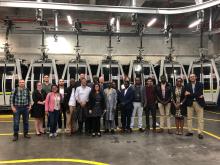
LEARN MORE
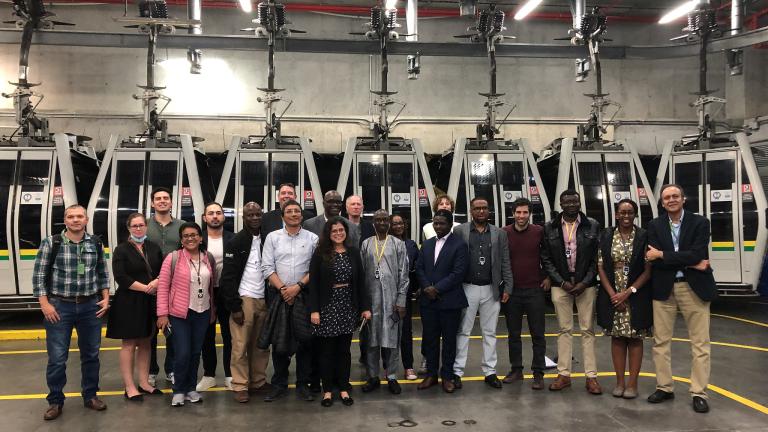
Urban Cable Cars in Medellín
This Peer-to-Peer Exchange brought together 20 participants from Freetown, Lima and Medellín to discuss planning and implementing urban cable cars within an integrated transportation system.
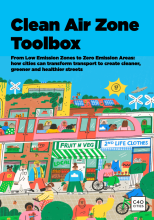
Clean Air Zone Toolbox
This toolbox is for all C40 and non-C40 cities planning, developing and implementing Clean Air Zone policies.
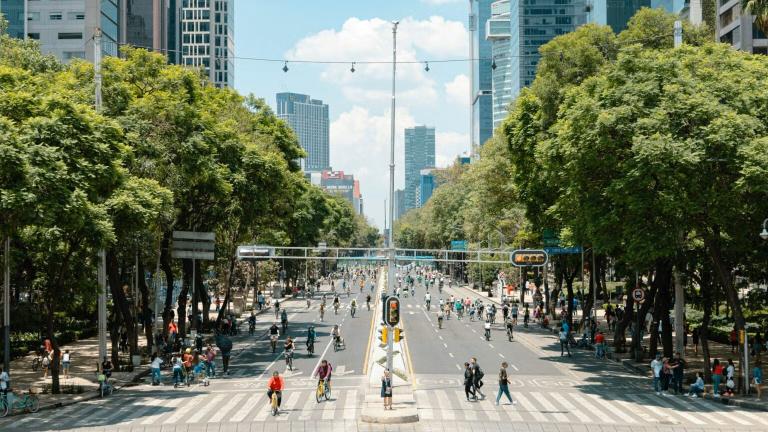
Meet CityMetrics: An Open-Source, Interactive Tool for Analyzing Urban Risks and Opportunities
With CityMetrics, a new geospatial data platform developed by WRI, over 60 cities--including all 23 UrbanShift cities--can access in-depth data on urban risks and vulnerabilities.
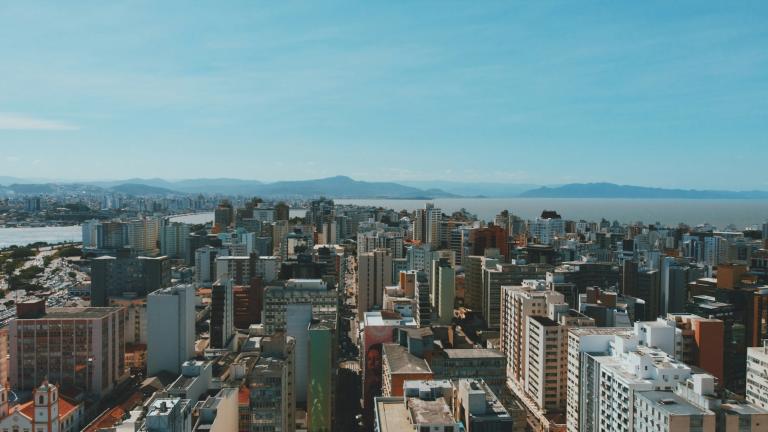
UrbanShift Annual Report Launch Webinar: Reflecting on 5 Years of Impact
This webinar will highlight voices from around the UrbanShift network and spotlight stories of sustainable urban transformation.
